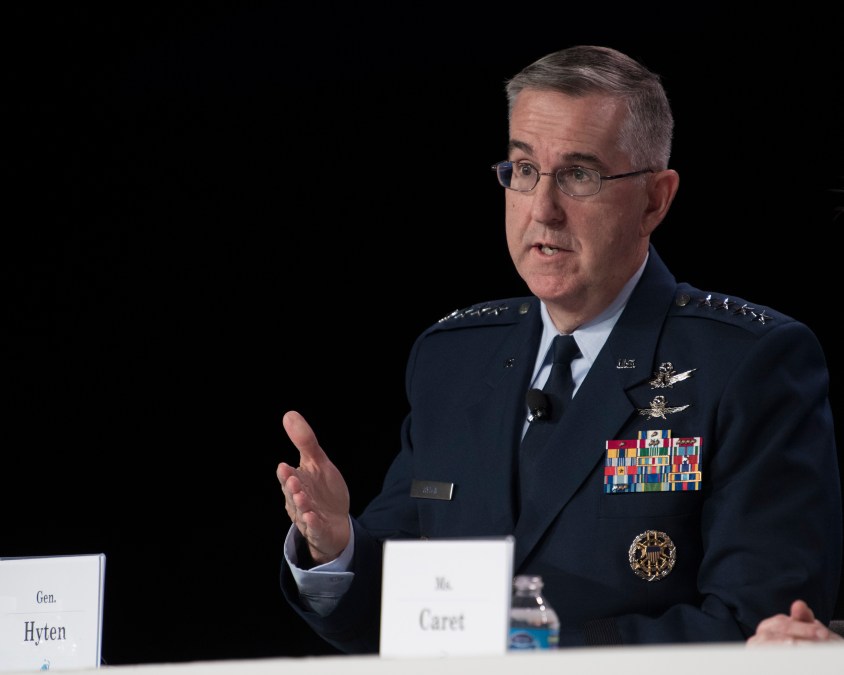Hyten signs new requirements to ensure military services make data accessible

Gen. John Hyten, the vice chair of the joint chiefs of staff and head of the Joint Requirements Oversight Council, has signed four new strategic directives that mandate all U.S. military services to make data accessible for all their weapons and platforms.
The new directives are based off recent “Data Decrees” signed by the Deputy Secretary Kathleen Hicks in May, which give specific advice on data management and call on senior leaders to use the DOD’s Advana platform as a central repository for data analysis that is used to support decision making.
The latest requirements are intended to support the development artificial intelligence systems within the DOD, which require access to vast datasets in order to learn new capabilities. In the private sector, tech giants such as Amazon, Apple and Microsoft have long relied on access to such pools of data for the development of AI-supported search functions such as Alexa and Siri.
“Thee simple requirement will be from this day forward all data form the Department of Defense … will be accessible. period. It has to be that way, there can be no other alternative,” Hyten said.
“Services will have to build their systems to meet that requirement,” he added.
Hyten said that without interoperable and accessible data, further dreams like implementing artificial intelligence can’t become a reality.
Hyten also urged the department to adopt enterprise cloud computing capabilities. Not mentioning the stalled Joint Enterprise Defense Infrastructure (JEDI) by name, Hyten said that without a “real cloud” the DOD won’t be able to use and store all of the newly interoperable and accessible data.
Once the DOD has large, accessible data sets and the cloud capabilities to turn that data in to intelligence, networking together operations across the domains of air, land, sea, space and cyberspace operations will be the new means the DOD thinks about deterrence.
“That will create a deterrent that is nearly as powerful as our nuclear deterrent,” Hyten, who used to lead Strategic Command which controls the U.S. nuclear arsenal, said.






